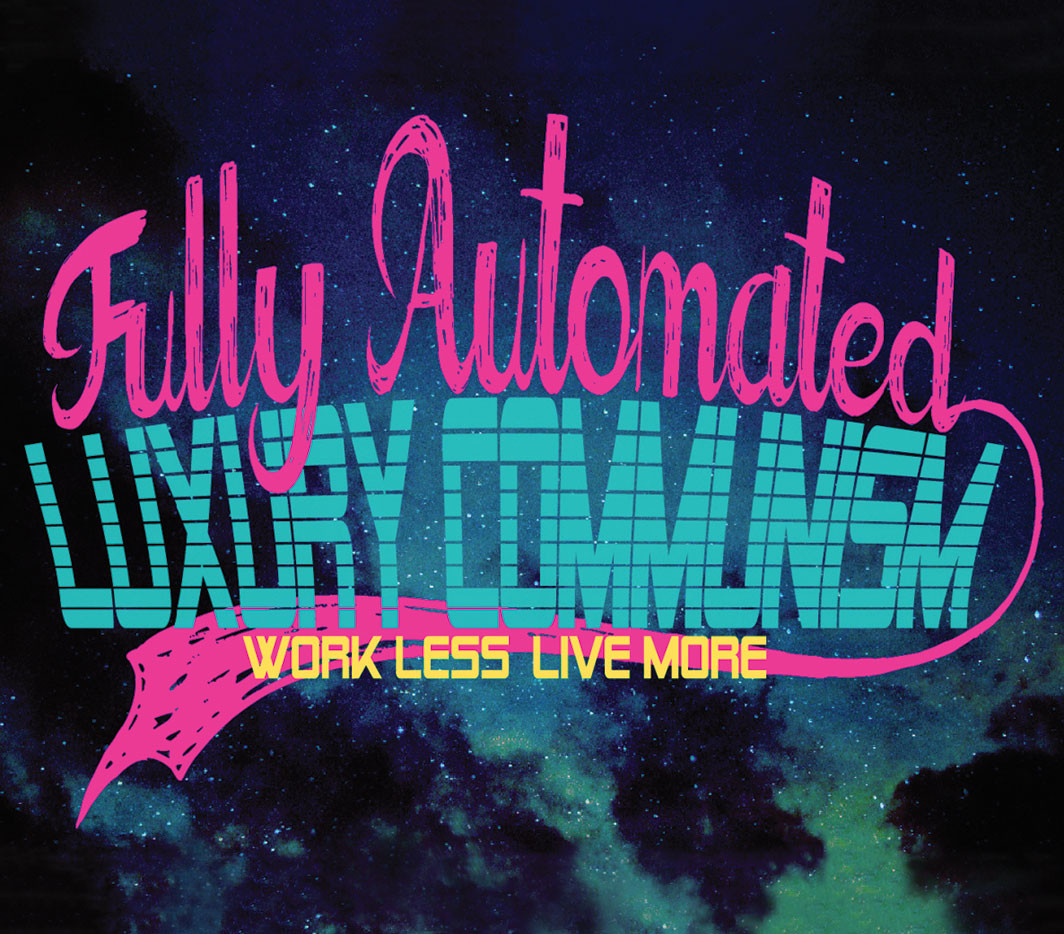In the new summer issue of Bookforum, Sarah Jaffe reviews Fully Automated Luxury Communism: A Manifesto by British writer and activist Aaron Bastani, forthcoming from Verso in June. The title of the book comes from a half-serious internet meme that first circulated around the time of Occupy. Bastani takes the meme as a serious political vision, arguing that new technologies make “fully automated luxury communism” a real possibility, if we can radically change our political priorities. In her review, Jaffe commends Bastani for pointing the way toward a future of less work and more pleasure, even as she chides him for a too-rosy view of contemporary technology. Here’s an excerpt:
To Marx, socialism wasn’t the end point—he considered it a transitional stage preceding communism. The proletariat would seize control of the state and run it for themselves, to produce the conditions under which communism would be possible. The state would fade into memory and work would cease to be work. Such a system, of course, has never been achieved. And the regimes that called themselves “Communist” in the twentieth century put many of today’s socialists off the idea. Not so Aaron Bastani, the cofounder of Novara Media, a platform for left-wing articles, podcasts, and radio and video programs, whose new book Fully Automated Luxury Communism attempts to take the word back to Marx’s post-work, post-scarcity future…
Bastani writes earnestly and at breakneck speed. His opening treatment of the current political moment and its various crises is quickly dispensed with—he doesn’t think he needs to convince readers that something is wrong with capitalism. Marx makes an appearance, followed by John Maynard Keynes and (surprisingly) management theorist Peter Drucker, each of whom imagined that technology could reduce human toil. Since each of these thinkers made his case, the pace of transformation has only accelerated. Unlike the 1990s, the peak era of capitalist realism, the late 2010s have made it clear that things won’t look the same tomorrow, much less five years from now. But there remains a tension between the inevitability of change and who benefits from that change. “The present moment,” Bastani writes, “defined by challenges such as rising temperatures, technological unemployment, income inequality and societal ageing—to name just a few—poses questions which extend beyond mere technical competence.”
Image credit: afreshcoatofpainter.wordpress.com. Via Bookforum.
